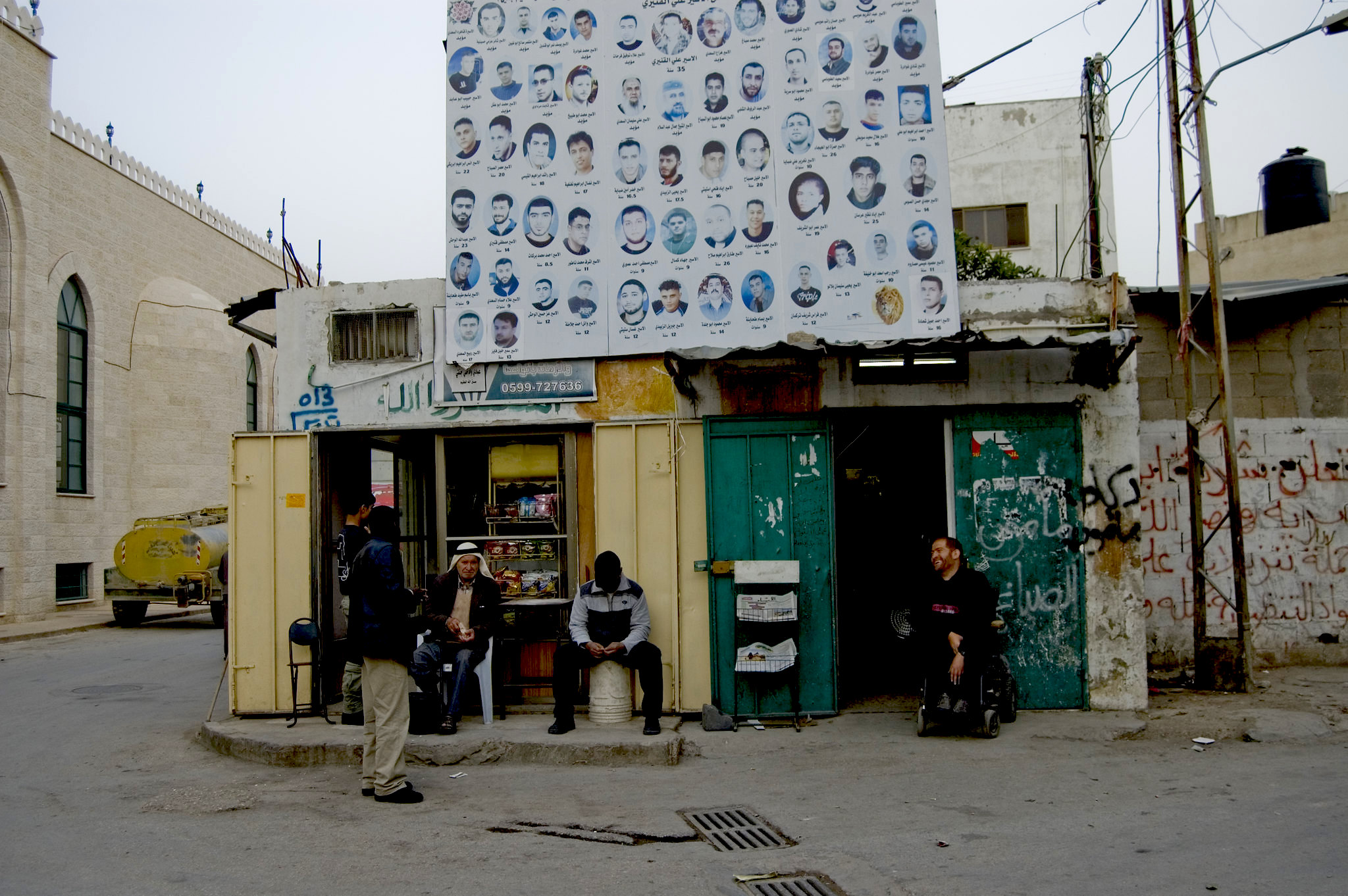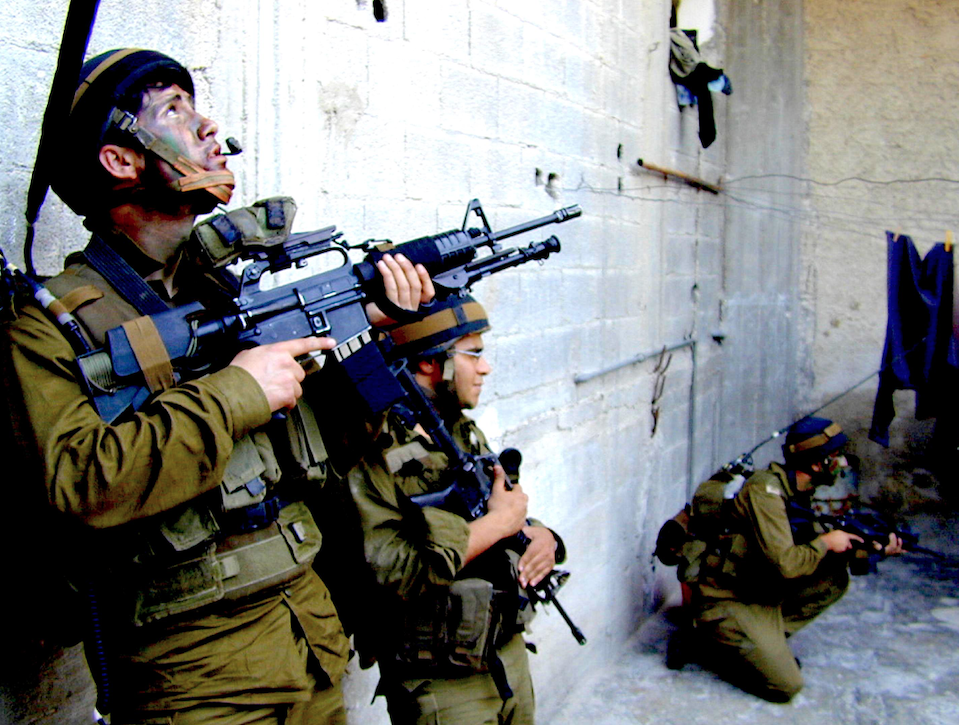The refugee camp terrifies Israel because it is a representation of a much greater fight undertaken by Palestinians in besieged Gaza and throughout the Occupied West Bank, writes Ramzy Baroud.

Jenin, 2010. (francis mckee, Flickr, CC BY 2.0)
 On June 19, a large Israeli military force raided the northern Palestinian town and refugee camp of Jenin from multiple directions. Not only did the raid fail, it backfired, and it also created a precedent in Israel’s decades-long war on the ever-rebellious Palestinian region.
On June 19, a large Israeli military force raided the northern Palestinian town and refugee camp of Jenin from multiple directions. Not only did the raid fail, it backfired, and it also created a precedent in Israel’s decades-long war on the ever-rebellious Palestinian region.
Israel killed eight Palestinians and wounded 91 more, following hours of clashes involving Israeli soldiers, on the one hand, and unified Palestinian Resistance groups, on the other.
Israel only admitted to the wounding of eight of its soldiers, with some Israeli media outlets speaking of critical injuries among the invading troops and others claiming only moderate wounds.
The reality on the ground, however, suggested that an extraordinary battle had taken place. Locally produced videos showed Israeli military vehicles blown up, engulfed in clouds of fire and smoke, among them the Panther troops carrier — known as Nimr — a monstrous, well-fortified vehicle used in moderate to heavy combat.
A total of seven vehicles, along with a military helicopter were blown up or damaged in what was meant to be a routine Israeli raid on Jenin, which has often resulted in the killing of several so-called wanted Palestinians — a reference to fighters who resist the Israeli military occupation.
The military wings of Hamas and the Islamic Jihad — the main resistance forces in Jenin, in addition to the Al-Aqsa Martyrs Brigades — issued statements detailing the courage of their fighters and celebrating the legacy of those who have been killed in the fighting.
But not all Palestinians killed were fighters. Israel targets civilians, including children, women, medics, and journalists, as a matter of course. One of the Jenin victims was a 15-year-old boy named Ahmed Saqr. Another is a 14-year-old girl named Sadil Ghassan Turkman. A journalist, Hazem Emad Nasser, was also wounded.
Heart-breaking scenes from the funeral of 15-year-old Palestinian girl Sadeel Naghniyeh, who died from critical injuries sustained by Israeli occupation troops' live bullets during Monday's military raid into Jenin. pic.twitter.com/1XBbU1bvC4
— PALESTINE ONLINE ?? (@OnlinePalEng) June 21, 2023
One of those killed, Amjad Aref Abu Jaas, is the father of a Palestinian youth, Wasim, who was killed by the Israeli army during a previous invasion of Jenin, on Jan. 25.
The fact that a son and a father were both killed, a few months apart, by Israel is indicative of Israel’s relationship with Jenin. Israel sees Jenin as the beating heart of resistance — armed or otherwise — in the Occupied West Bank. Therefore, Jenin has been Israel’s main target for decades, simply to downgrade — never crush — the intensity of the resistance there.
Israel knows that crushing the resistance in Jenin is not possible. Though the far-right ministers in Benjamin Netanyahu’s right-wing government are constantly making such a demand, the Israeli military understands the difficulty — in fact, the impossibility of such a task.
Generational Resistance
The Jenin refugee camp was established in 1953 by the United Nations Palestinian Refugees Agency (UNRWA). The inhabitants of the camp are refugees who were expelled by Israeli Zionist militias and gangs during the Nakba, the ethnic cleansing of historic Palestine in 1947-48.
The camp has grown in terms of size and population over the years, though poverty and neglect have remained its main features. The history of the camp and its inhabitants has been the main drive behind their ongoing resistance.
In my 2003 book, Searching Jenin, I detailed the accounts of many of the camp’s residents as they described the legendary battle and the subsequent massacre of April 2002.
The pride and toughness of the residents of Jenin struck me, although I am quite familiar with the tenacity of the resilience of Palestinians, in general.
Despite the killing of dozens of its inhabitants, the wounding of hundreds, the arrests of many and the destruction of entire neighborhoods, the Jenin residents insisted that the resistance is not over and that the next generation will soon continue what they have begun.
Writing about Jenin in recent months, I realize that many of the family and clan names are repeated, whether in the last name of fighters and martyrs, but also journalists, medics and civilian victims are mentioned. Somehow Jenin, though in near complete isolation, ongoing suppression, and utter neglect, has been resurrected from the ashes of the past.
I wonder if the young Israeli soldiers who keep invading Jenin, killing a few Palestinians at a time with each invasion, know anything about that history, about where these refugees came from, and that, no matter how violent and well-armed their bloody quests can be, Jenin will never surrender.
In other words, for Israel, the battle of Jenin is already lost.

Israeli forces in the Jenin Camp during the Battle of Jenin in 2002. (IDF Spokesperson’s Unit, Wikimedia Commons, CC BY-SA 3.0)
It Is Not Over
Jenin terrifies Israel, because it is a representation of a much greater fight undertaken by Palestinians in besieged Gaza and throughout the Occupied West Bank. They know that all Palestinians are watching the events underway in Jenin — but also in Nablus and its environs, Al-Khalil (Hebron), Jericho, and more. When Jenin resists, Palestinian resistance rises in unison.
In April 2002, during the invasion of major Palestinian cities of the West Bank, the destruction of Jenin was meant to be the tragic end of an equally tragic Palestinian story. The survivors eventually trickled back into the camp, collected and buried the bodies, often in mass graves, looked after the wounded, and slowly began rebuilding their shattered lives.
Then, all of Palestine was bleeding; Nablus, Ramallah, Bethlehem, and Gaza were reeling under the heavy weight of Israeli tanks, which left in their wake massive destruction and a high death toll. Israel emerged bruised but triumphant.
The Palestinian Authority’s police force was restructured around Israeli priorities and with American training and funds. Palestine, it was thought, was squarely defeated.
But the prophecy of those I interviewed two decades ago turned out to be true: The resistance is not over, and the next generation will continue what has begun.
Since then, many of my eyewitnesses have died — old age, broken hearts, Israeli bullets, and so on. Some are currently in prison. But others are still alive to remind us that freedom is precious and that the desire for justice can never be killed or defeated, no matter the enemy’s firepower or the sacrifices. Because it is innate and God-given, and because Jenin knows its history too well.
Ramzy Baroud is a journalist and the editor of the Palestine Chronicle. He is the author of five books including: These Chains Will Be Broken: Palestinian Stories of Struggle and Defiance in Israeli Prisons (2019), My Father Was a Freedom Fighter: Gaza’s Untold Story (2010) and The Second Palestinian Intifada: A Chronicle of a People’s Struggle (2006).
This article is from Common Dreams.
Views expressed in this article and may or may not reflect those of Consortium News.
Support CN’s Spring
Fund Drive Today



As with USAins, those with overwhelming firepower advantage claim the protective cloak of persecution. Their lies are a sham.
It still baffles me how Israel can be as cruel as the SS…
Now it is about ending apartheid, freedom, and equality in a secular state from the river to the sea. It is difficult to see how getting there will be achieved by force. Especially without a political vision or plan on getting to a win-win politically. Noting the rejection Greater Israel proponents are now encountering in the West, there are opportunities to strengthen bridges to important allies like Americans and Jews.
The American civil rights campaign provided a workable model.
It truly seems as if the leaders in Israel have turned themselves into the Nazis.
Hi there, the Netanyahu loophole and why he needs resistance, in my opinion.
Netanyahu Brags About How Easy It Is To Manipulate The United States (2010)
“Narrator: The Oslo Accords stated at the time that Israel would gradually hand over territories to the Palestinians in three different pulses, unless the territories in question had settlements or military sites. This is where Netanyahu found a loophole.”
hxxps://thesaker.is/netanyahu-brags-about-how-easy-it-is-to-manipulate-the-united-states/
The silence from the West’s purported democracies is deafening and all too reminiscent of the world’s reaction to the Nazi oppression of Europe’s Jews.